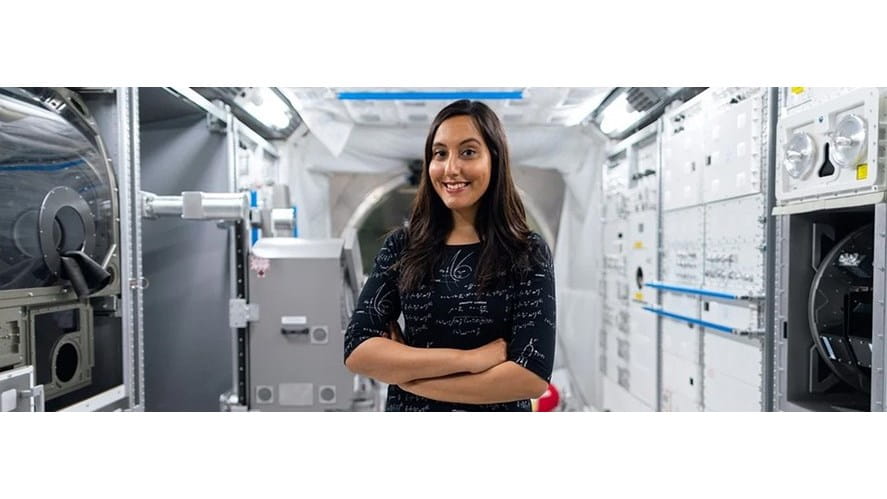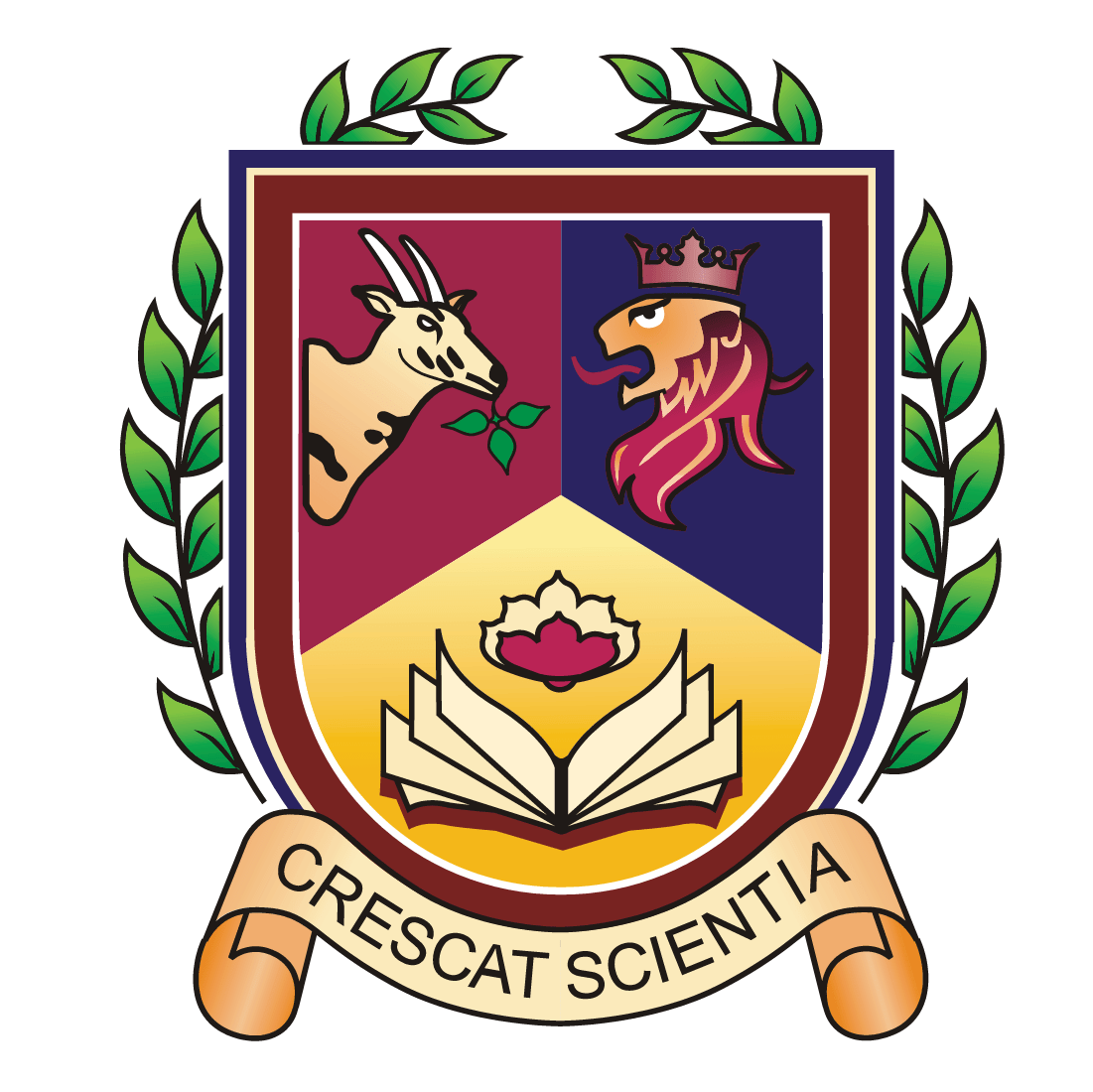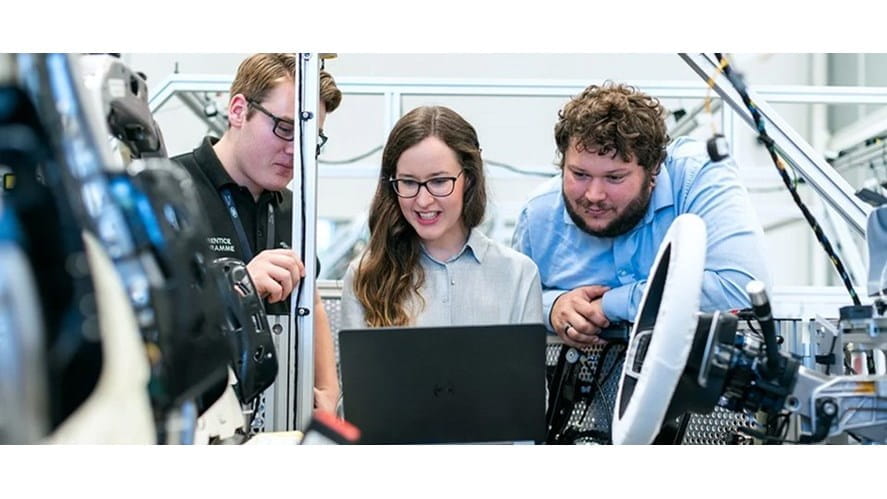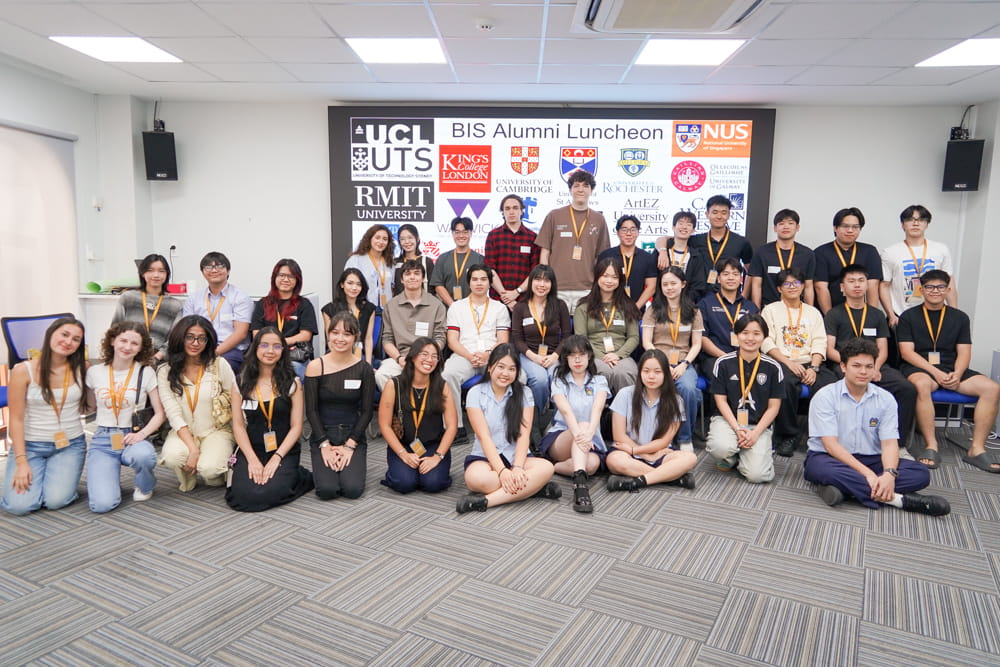How to Become an Engineer: Step-by-Step Guide Dream about studying Engineering with the world’s best? Learn how an education at the British International School HCMC will enable you to shape the career you’ve dreamed of.

Dream about studying Engineering with the world’s best? Learn how an education at the British International School HCMC will enable you to shape the career you’ve dreamed of.
Why study Engineering?
Students who choose the study pathway of Engineering will find that they have a wide variety of career options available to them following graduation. Engineers also tend to have high levels of job satisfaction and starting salaries are among the best across all industry sectors. In Engineering careers there is a guarantee of change and evolution, which means that you never have to worry about doing the same thing year after year. A degree in Engineering also equips graduates with a number of transferable skills: problem solving, decision making, innovation, project management, teamwork, and communication, to name a few.
Which Engineering pathways are available?
There are a huge variety of types of Engineers needed to solve real world problems. The profession certainly is not purely about making calculations (though Mathematics is clearly one of the most important tools to an Engineer). It is about applying that Mathematics to the real world, and also communicating your solutions to stakeholders. Some examples include: involvement in major construction projects such as building a bridge, designing more efficient components for a racing car in order to reduce drag, designing more efficient batteries for devices or improving the sustainability of existing products and services.
Many Engineers of the future are going to need to understand how advances in Engineering Technology can be used to help limit the level of environmental impact. Sustainability will also be a key quality in future large scale projects.
There is a huge range of Engineering Programs offered by universities worldwide. The following is just a short list to illustrate the point:
- Chemical Engineering
- Civil Engineering
- Mechanical Engineering
- Electronic Engineering
- Computer Engineering
- Design Engineering
- Systems Engineering
- Industrial Engineering
- Aerospace Engineering
- Aeronautical Engineering
- Automotive Engineering
- Biomedical Engineering
- Structural Engineering
- Architectural Engineering
- General Engineering
- Environmental Engineering
- Geological Engineering
- Petroleum Engineering
- Marine Engineering
So how do you choose which type of Engineering you want to pursue?
Depending on your university choices, you don’t have to choose the type of Engineering you wish to major in before applying. Some universities actually don’t offer you the opportunity to specialise in one type of Engineering until further through the course. At the University of Cambridge for example you would apply for a ‘General Engineering’ degree and then specialise later.
If you already know which type of Engineering you wish to specialise in then you should research university courses that will match this aim. A student with a passion for Physics and a desire to be a pilot, or to work more generally in the aircraft industry, may like to specialize in Aeronautical or Aerospace Engineering, though be warned this is traditionally one of the most competitive Engineering courses to gain a place on.
On the other hand, a student with a passion for Mathematics and Physical Geography may be interested in a course in Geological Engineering (or indeed in Geology). A student with a passion for Design or Art, may be more interested in the Design Engineering or Architectural Engineering.
Look at your interests outside Mathematics and Science and see which type of engineering will suit these interests.
What should you be studying now (KS3 and IG and IB Choices) to prepare you for this sort of career path?
Mathematics and Science subjects are obviously key to accessing university courses majoring in Engineering. The level of Mathematics you require and which Science subjects are the most relevant will obviously vary according to the type of Engineering course you are interested in. The most competitive courses will require you to have completed three separate IGCSE Science subjects and likely will also require Maths and Physics (or one other Science) at IBDP Higher level.
Which universities are renowned for Engineering?
In the United States, Engineering is likely to be a 4-year undergraduate degree. You would not necessarily select your major before applying, so would elect to study more Mathematical and Science based courses in the freshman (1st) year. It should then be possible to choose the major. Well known Engineering programs in the US include MIT (the School of Engineering), Caltech (apply to the Division of Engineering and Applied Science), Stanford (School of Engineering), and Georgia Institute of Technology. The University of Michigan also has a strong reputation in the field. Then there are universities specialising in various types of Engineering (for example Embry Riddle focusses purely on Aeronautical Engineering).
In the UK, the standard Bachelor’s degree would be 3 years but many universities may offer a 4-year MEng course (this would enable you to get a Bachelor’s and Master’s degrees). It is also an excellent idea to look out for ‘sandwich’ courses with a year in industry. This would extend the course by a year, but would allow you to gain valuable hands-on industrial experience. Well known universities for Engineering are Oxford, Cambridge, Imperial, Manchester, Bristol, Warwick, Edinburgh, but there are of course many others.
Elsewhere around the world there are many other universities well known for Engineering and Technology. ETH Zurich for example is often ranked as the highest mainland European university. It is probably as competitive to get into as Oxford or Cambridge for Engineering. Also consider universities in Asia: HKUST in Hong Kong, KAIST in Korea, Nanyang Technological University and National University of Singapore are all regularly ranked in the Top 15 universities in the world for STEM subjects.
If you are applying for an Engineering major what would set you apart from other applicants?
In recent years a large number of students from the British International School Ho Chi Minh City have made successful applications to study Engineering in universities across the world. It is one of the most popular ‘majors’ for BIS alumni.
A strong academic profile in the Sciences and Mathematics from IGCSE in Year 10 and 11 to IBDP in Year 12 and 13 is essential but there are other contributing factors to a successful Engineering application which can set you apart. Some proof of your interest in this field is always good. Have you researched the various careers within this field? Have you investigated any examples of great Engineering triumphs? Have you taken up any internship opportunities? They will also be looking for people with good communication skills, including a good standard of English. In a job as an Engineer it is essential that you’re able to communicate your ideas effectively with others.
What support do you get from the University Guidance Team at BIS?
The Careers and University Guidance Team at the British International School HCMC provides a range of support, content and resources to support our students who apply to study Engineering.
If you are called for interview, we would arrange at least one and possibly two practice interviews in school. These would involve a mixture of some problem solving for you to try, connected to your likely Engineering interest, with some more general interview practice provided.
If you require an entrance test (e.g. ENGAA test required for Cambridge) we will help you to prepare for the test by giving you some test preparation workshops run by the CUG team or by a member of the teaching team. We can also administer the ENGAA test on school site at BIS HCMC, so you would not have to travel elsewhere to sit the test.
Outside of the dedicated support from the CUG team, there are a myriad of opportunities to support your Engineering endeavours. The F1 in Schools Team co-curricular activity (CCA) is a perfect fit with those students who are planning on a study pathway or career in an Engineering-related area. Mr. Paul Rispin, University Guidance Counsellor says: “Firstly, the value of the hands-on experience of working at the intersection of design, engineering, marketing and management is undoubted. The F1 in Schools Team offers such great opportunities to build leadership and collaboration skills, in addition to the other areas that both employers and universities are keen to see in candidates: critical thinking, creativity and communication. As with many other sectors these days, transferable skills are preferred over content knowledge as may have been the case traditionally. Automation and technology have placed a greater emphasis on the application of knowledge and analysis and therefore Engineers of the future need to consider how people will interact with structures, systems and processes.”
As a parent, of a student who wishes to study a degree in Engineering how can you support your child?
If you can help with finding an internship that would certainly be valuable. An internship before the student starts university is not essential (as it would be for Medicine) but it can give a great insight into the Engineering field which is incredibly broad.
Paul Rispin, University Guidance Counsellor, also encourages your son/daughter to be aware of all of the real world problems which can and are being solved by engineers every day. “Help by making them stop to think about how the world around us has profoundly changed thanks to the work of Engineers. Everything from your mobile phone, to the satellite navigation in your car, from your laptop, to the remote control for your aircon. Also how transport systems rely entirely on Engineering. Engineering has ensured that the planes that we fly in are safe, but also that they become more efficient. Many people only think of the big structural objects designed by Engineers. e.g. large stadiums, giant skyscrapers, subway systems, major infrastructure, but Engineering can be on a microscopic level too. Genetic Engineering is one obvious example, without an understanding of the genome sequence of a Novel Virus such as COVID-19 it would be impossible to produce a vaccine. Biomedical Engineers can literally be the most important professionals on the planet at times of crisis. It is not only doctors who save lives.”
Engineers are also going to be the key to making our future greener; by producing cleaner energy, by reducing waste, by reducing single use products, by cleaning up our oceans. As a parent it is helpful if you can discuss these issues with your child and if it inspires an interest in Engineering then all the better.
Finally, encourage outside reading. Listed below are some web links to help with your son/daughter’s research. Some of these sites are about choosing the right College or University course, but others are sites to help them explore the general field of engineering. This type of extra reading and extra interest in the field is what universities are looking for, so do encourage them to engage with these sites and to regularly subscribe to and read journals focussing on Engineering.
Further Reading - Choosing a University
Further Reading - General Engineering Information
More Articles from the Careers and University Team









